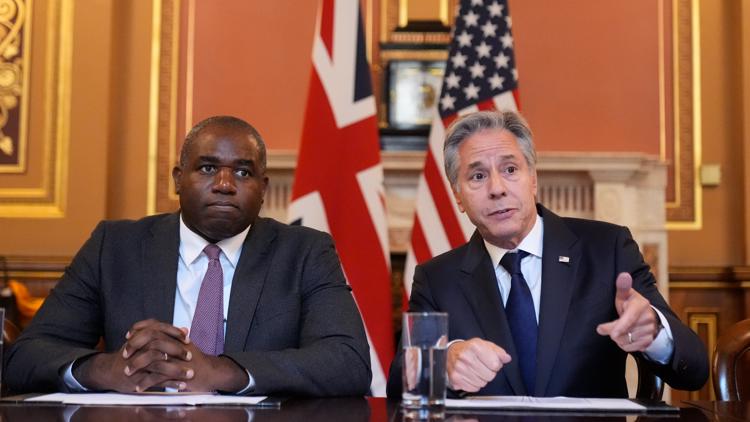
In a coordinated effort to counter Iran’s involvement in the ongoing Russia-Ukraine conflict, Western powers have announced new sanctions against Tehran for supplying Russia with short-range missiles. These missiles, set for imminent use in Ukraine, represent what Britain, France, and Germany described as a “dangerous escalation” threatening European security. The group of countries, known as the E3 powers, emphasized that this move by Iran and Russia was a direct challenge to stability in the region.
The sanctions target Iran’s national airline, Iran Air, along with aviation agreements between the E3 powers and Tehran. Britain announced the termination of all direct air services between the UK and Iran, while the United States imposed sanctions on 10 individuals and companies connected to the supply of these missiles. US officials accused Iran Air of operating within the Russian economy, further justifying the sanctions.
In a joint statement, the E3 powers said, “This act is an escalation by both Iran and Russia and is a direct threat to European security.”
U.S. Weighs Lifting Restrictions on Long-Range Missiles for Ukraine
As part of the broader response to Russia’s aggression, President Joe Biden stated that the United States was considering allowing Ukraine to use long-range, US-made missiles in its defense efforts. “We’re working that out right now,” Biden said, hinting that such a decision would further intensify military support for Kyiv.
On a visit to London, US Secretary of State Antony Blinken warned that Iranian missiles could be used against Ukraine “within weeks.” According to Blinken, Russian military personnel have been training in Iran on the Fath-360 missile, which has a range of 120 kilometers.
Iran Denies Claims, Accuses West of Distraction
Iran rejected the allegations, with Foreign Ministry spokesman Nasser Kanani dismissing the Western accusations as “false and misleading.” Kanani accused the West of fabricating the claims to divert attention from its support of Israel in its conflict with Hamas militants. He called the allegations “ugly propaganda and lies” intended to obscure the arms support provided by the U.S. and its allies in the ongoing Gaza conflict.
Blinken’s Solidarity Visit to Kyiv
The announcement of sanctions came as U.S. Secretary of State Blinken and UK Foreign Secretary David Lammy planned a joint visit to Kyiv. This trip is seen as a demonstration of solidarity with Ukraine, especially as Russian forces intensify their offensive in the east. Moscow has also been attempting to repel a significant Ukrainian counteroffensive into Russia’s western Kursk region, marking a pivotal moment in the conflict.
UK’s Continued Support for Ukraine
Britain, known for its consistent backing of Ukraine, announced the delivery of 650 new missile systems to Kyiv after Ukrainian President Volodymyr Zelensky raised concerns over the slow pace of Western military aid. British officials have been vocal about their willingness to ease restrictions on the use of Western weapons on Russian territory, a topic addressed by Lammy during his visit to Kyiv. He refrained from confirming reports about long-range Storm Shadow missiles, noting that operational matters should not be publicly discussed.
U.S.-UK Special Relationship
The U.S.-UK “special relationship” continues to play a key role in shaping their foreign policy strategies, particularly in regard to Ukraine. The upcoming visit of UK Prime Minister Keir Starmer to the White House underscores the close coordination between the two allies. Despite political shifts in both nations, their support for Ukraine remains steadfast.
However, Starmer’s stance on the Israel-Hamas conflict has been tougher than that of his Conservative predecessors, with his government restricting certain weapons to Israel, citing concerns over violations of international humanitarian law.
Conclusion
As the war in Ukraine drags on and Western powers continue to ramp up military and economic pressure on Russia and its allies, the geopolitical stakes are higher than ever. The sanctions on Iran and potential changes in U.S. policy regarding long-range missiles signal a continued commitment to supporting Ukraine in the face of mounting threats from Russia and its partners.
Sources By Agencies



